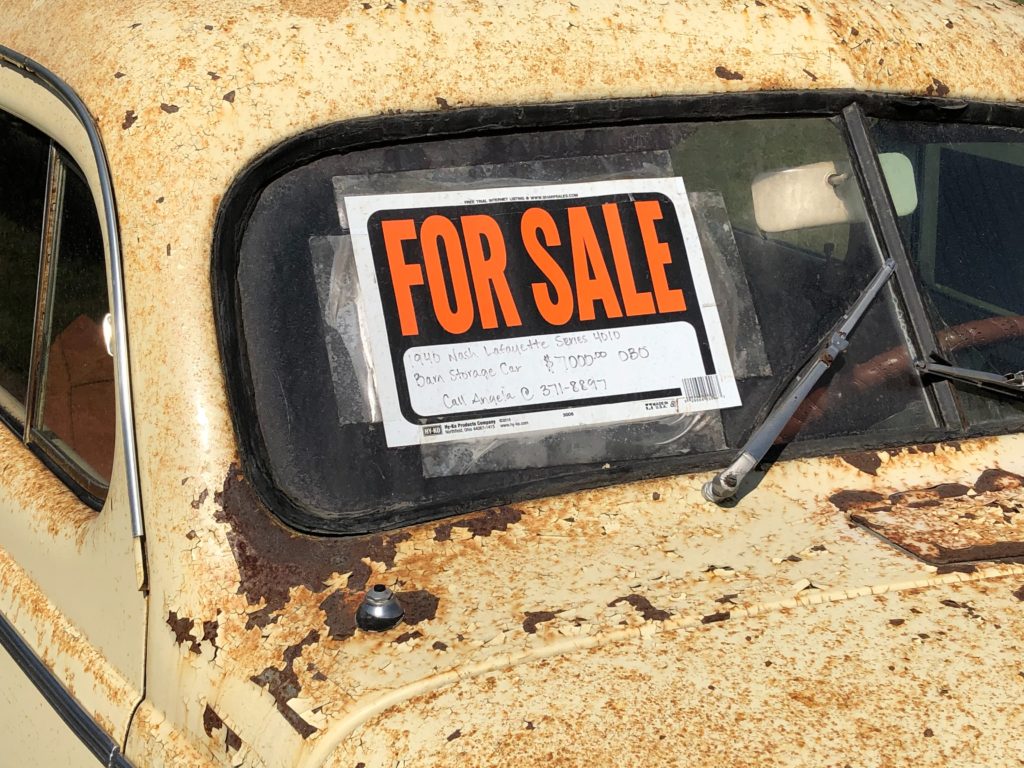
By Andrew Brown | 1/12/23
Andrew has been in the automotive industry for years now. Having worked from luxury brands to economy brands, with everything in between, he is our go to voice on the value of a car. As an appraiser for our company, he has been able to go through and debunk some of the myths around vehicle value and let us have some insight into getting the most out of our cars. In this article, we’ll explore some of the key factors that establish the value of your car. Including its make and model, age, condition, mileage, and even location.
One of the primary factors that determines a car’s value is its make and model. Some car brands, such as Mercedes-Benz or Lexus, are known for their luxury and are generally more valuable than other brands. Now keeping that in mind it’s hard to give this a clear and concise numerical value. Especially with higher end brands, you will see more depreciation and certain models within a brand may be more valuable due to their rarity or popularity.
Age is another factor that can impact a car’s value. Newer cars are worth more than older ones which seems obvious, but this is because newer cars tend to have more advanced features and are less likely to have problems due to wear and tear.
Condition is another important factor that determines a car’s value. A car that is well-maintained and in good condition is generally worth more than one that is not. This is because a well-maintained car is less likely to require expensive repairs in the future.

Age and condition greatly impact a car’s value. Regular maintenance can help maintain or increase value.
The location of a car can also have an impact on both its value but also its condition. For example, if a car that is regularly driven in an area with harsh weather conditions, such as extreme heat or cold, may be more prone to problems due to the extra wear and tear on its components. Similarly, if a car is frequently driven in an area with poor air quality, it may suffer from corrosion or other issues that can impact its value.
Mileage is a factor that can impact a car’s value a lot more than you think. Cars with lower mileage are worth more than those with higher mileage. This is because a car with low mileage is typically less worn and may have a longer lifespan. Cars with higher mileage, even those brands considered to be more reliable like Toyota or Honda, will be worth less because the probability of having rust, engine and transmission damage, or body damage are all more likely.

Other factors that can impact a car’s value include its features and fuel efficiency. Cars with features such as navigation systems or leather seats may be worth more than those without these features. Similarly, cars that are fuel efficient are typically more valuable due to their lower operating costs.
Cars with high safety ratings are generally more valuable due to the added peace of mind they offer to buyers. This due to the fact that the consumer can rest at ease as they travel to and from work or for the family road trip. The higher the safety rating also implies that this vehicle also has a higher level of technology and this is always something that is a plus when selling or buying a car in today’s market.
When buying or selling a car, it’s important to consider all of these factors to get a good sense of how to find the value of your car. By understanding what establishes the value of a car, including the impact of location on a vehicle’s condition, you can make more informed decisions and get a fair price whether you’re buying or selling.

When you work with CarVIO, you can sell your car instantly right from your own home. You can avoid unnecessary hassle or long, drawn-out processes and benefit from a quick and safe way to sell your vehicle. We purchase vehicles in a variety of conditions, including cars that no longer run. When you work with us, we will get as much as possible for your vehicle without even leaving your couch.
If you are ready to sell your vehicle quickly and easily, submit our online form today!